- Got An Event/Business We Haven’t Listed? Contact Us

- Winston-Salem, NC
- Forsyth County, NC

Safari Nation Winston-Salem
- Indoor Playgrounds
All parents know of the importance of physical activity in kids, and Safari Nation’s Winston-Salem play areas encourage physical activity in a way that is fun. With a jungle gym, zipline, bumper cars, a toddler playground, and inflatables, children are more motivated to stay healthy and fit as they laugh and play with others.

About Safari Nation Winston-Salem
Safari Nation is a family entertainment center, also known as a Children’s Fitness Center. In 2012 Safari Nation was founded by a husband and wife who believed that parents needed a good place to take their children to play. The business soon became widely popular because of the clean, safe, and secure environment offered. It gives kids a chance to burn some energy, regardless of weather conditions outside, while parents can relax as their kids have some fun.
All parents know of the importance of physical activity in childhood, and Safari Nation’s play areas encourage physical activity in a way that is fun. While kids play in a fun, active environment, parents enjoy the opportunity to observe their children in a comfortable, climate-controlled play zone while relaxing at the Coconut Cabana or playing vintage video games.
Safari Nation Winston-Salem Attractions
- Even kids can drive like champions in the Spin zone Bumper Car. A great family entertainer that is suitable for all ages (Children under 5 must ride with an adult). Please note this is an additional Paid Activity.
- By far our most popular play area, the Safari Nation® Ballocity Fun Zone is a one-of-a-kind play area unique to the Triad. Adventurers can climb and play on multi-level platforms with blasters, vacuum cannons, and buckets that propel, throw, raise, vacuum, and dump thousands of soft foam balls.
- Experience the thrill of a Zip-line in an absolutely safe environment. Break that first anxiety and develop self-confidence in your child to take on thrilling adventures.
- Lose yourself in one of the most exciting soft play structures in the Triad Area with activities like a mirror maze, monkey bars, slides, bridges, and hurdles to cross.
- Yes, You Can Fly when you jump from one ball to another to reach your target on the other side in our absolutely unique Big Baller game.
- Encourage your Toddlers to develop their Motor Skills and enjoy many fun activities in our Specially Designed Toddlers Area.
- Add to the fun with arcade games. Please note that this is additional Paid Activity.
- Take a break from your adventure at the Coconut Cabana. While kids play in a fun, active environment, they can also enjoy the opportunity to take a break with a snack and a Slush Puppie at the Coconut Cabana, a pizza, popcorn, and other treats.
Safari Nation Winston-Salem Birthday Parties
- Please View Our Amazing Birthday Parties for daily pricing
- Additional Birthday guests $9.99 – If fewer come on the day no adjustments can be made to party balance.
- Outside foods are allowed.
- 50% Deposit is required for all parties
- We do allow outside drinks for Parties
- We do not allow walk-in parties without a room.
Learn more about Safari Nation High Point Birthdays
Safari Nation Winston-Salem Hours
Monday 12:00 p.m. – 7:00 p.m.
Tuesday Closed
Wednesday 12:00 p.m. – 7:00 p.m.
Thursday 12:00 p.m. – 7:00 p.m.
Friday 12:00 p.m. – 7:00 p.m.
Saturday 10:00 a.m. – 8:00 p.m.
Sunday 12:00 p.m. – 7:00 p.m.
Safari Nation Winston-Salem Tickets/Admission
Safari Nation offers daily general admission to kids and families in Winston-Salem as well as memberships, group discounts and events, and birthday party options…all at affordable prices.
- Zipline is included in General Admission
- Adults can assist their kids Free
- Over 12 will not be able to play
- In-Store pickup only
- Cannot be applied to any other discounted offer.
- $29.99 + Tax (In-Store Purchase only)
- The last 2 hours of a business day are discounted
- The last 1 hour of a business day is heavily discounted
- Unlimited Visits (less than $50.00)
View current pricing and passes here
Safari Nation Winston-Salem Gallery

Explore More Topics
Recent articles.

All parents know of the importance of physical activity in kids, and Safari Nation’s…
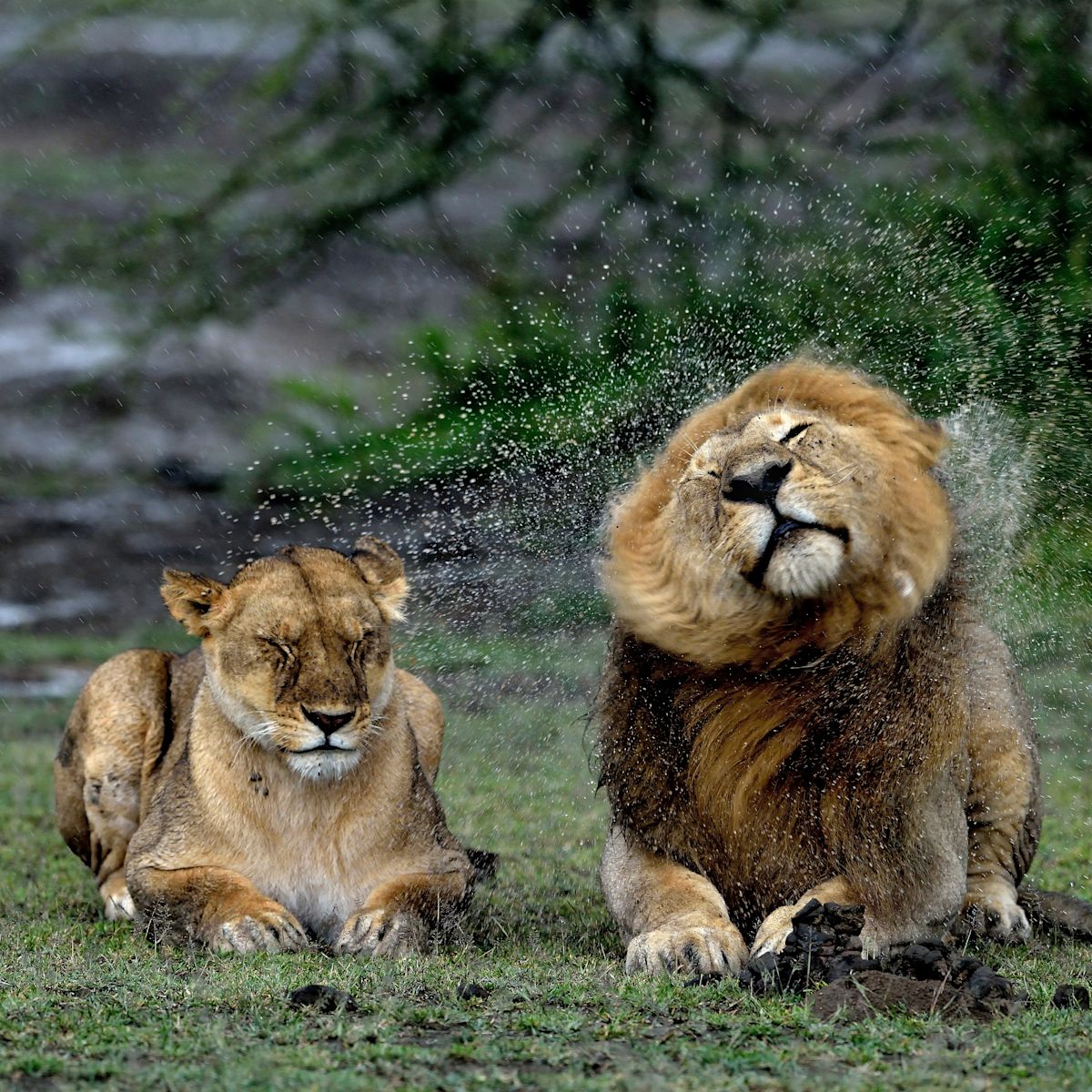
Safari safety tips (not just for dummies)
Let's talk safari safety. This means pointing to the African nations that are safe to visit, how to stay safe in terms of the wildlife (it's not all obvious stuff), what to know for self-drive safaris, and the safety perks of organised safaris.
We all know that if you plop yourself down among a circle of baboons, you’re asking for trouble.
So we’re not going to use this blog post to talk about the importance of not feeding or petting the wildlife on safari. We assume you know that already. Instead, we’re going to offer you some solid safari safety tips that are actually worth your time.
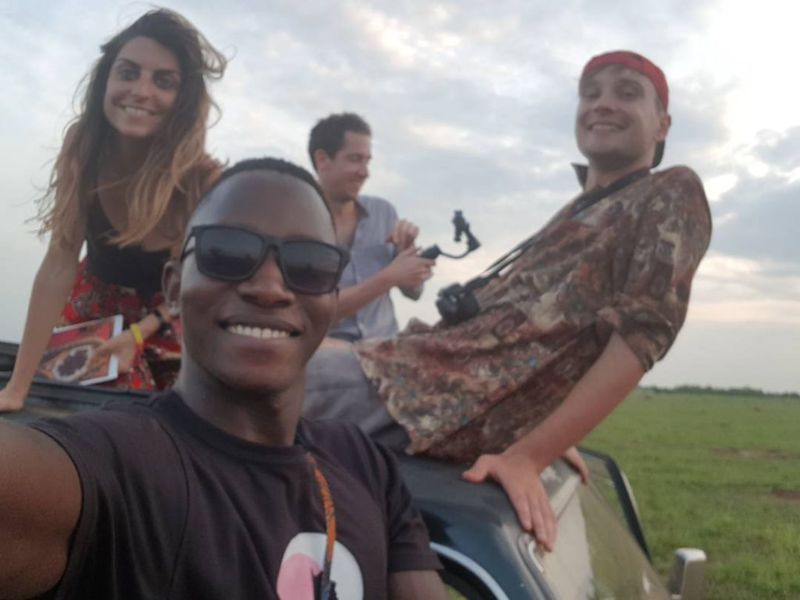
An African safari is an unforgettable experience
There are two primary aspects to safari safety:
- Ensuring you’re safe from the wildlife (both big and minute).
- Avoiding any dangerous or unstable regions.
That said, there are some other points we're going to make that are more about comfort than outright danger, like not getting stuck in a muddy rut and spending the night camped out in your 4x4.
Enough preamble.
How to stay safe on a safari drive
Safaris aren’t dangerous by nature.
That said, a safari – like riding a bicycle or stepping out your front door – is not entirely risk free. We take our lives into our hands every day. But we’re happy to report that a safari isn’t dangerous if done right.
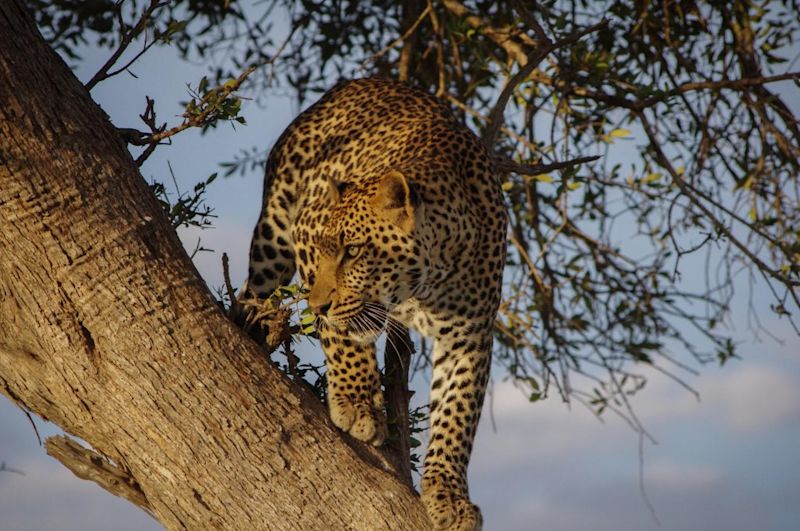
Leopards are elusive, making spotting one on a game drive a real coup!
When it comes to African wildlife, there are many dangerous animals, both large and small. And many will happily bite, buck, sting or stomp you if you aggravate them. (And just being in their way can be aggravating to some.) But the good news is that you’re not in danger from the wildlife unless you act recklessly or stupidly.
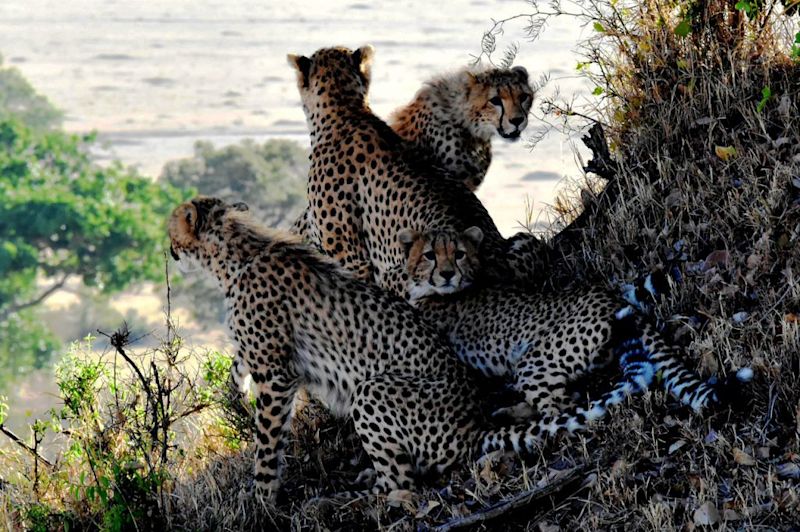
Cheetahs don't hassle humans unless the humans hassle them first
So you want to be sensible in the manner you go about game viewing, whether you're doing a self-drive safari or an organised one.
The main thing for keeping safe is to stay inside your vehicle when in a game park (unless your safari guide says it's safe to get out). We repeat: your vehicle is your safety shield on safari. Stay inside of it!
If you spot some exciting wildlife, don't jump out of the vehicle to photograph it – stay where you are and take a pic from there! #Safety101
Even if you see a solitary, sweet, doe-eyed duiker next to your car, don't get out to snap a close up (use your zoom lens for that). You never know what else is lurking just beyond view. And even the animals that look super cute and cuddly can sometimes be dangerous under the right set of circumstances.
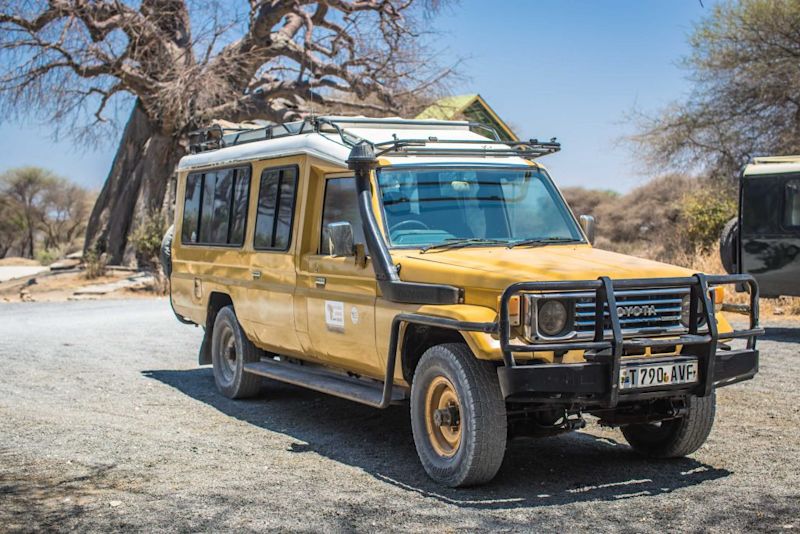
Always stay inside your vehicle unless your tour guide indicates it's safe to step out
Which are the most dangerous African animals?
It’s surprisingly difficult to pinpoint the most dangerous animal in Africa.
This is because danger comes in many forms. Some animals are hazardous because they have brute strength, others because of their immense size, and others because of their fearsomely strong jaws and sharp teeth.
Still others are highly dangerous because of their speed, wiliness, venom or camouflage.
So is the most dangerous African animal the lion ? He’s the king of the jungle, after all. But what about the elephant , which can crush you like a petal? Or the giraffe , which can actually decapitate you with a kick? Or the hyena , which has the strongest jaws of any mammal?
We also mustn't forget to consider the hippo . In spite of its ungainly appearance, the hippo is surprisingly swift, and is also aggressive to boot. In fact, hippos kill more Africans on average than any other large land mammal. (But once again, they – like other animals – are only dangerous to safari-goers if you step out of your vehicle.)
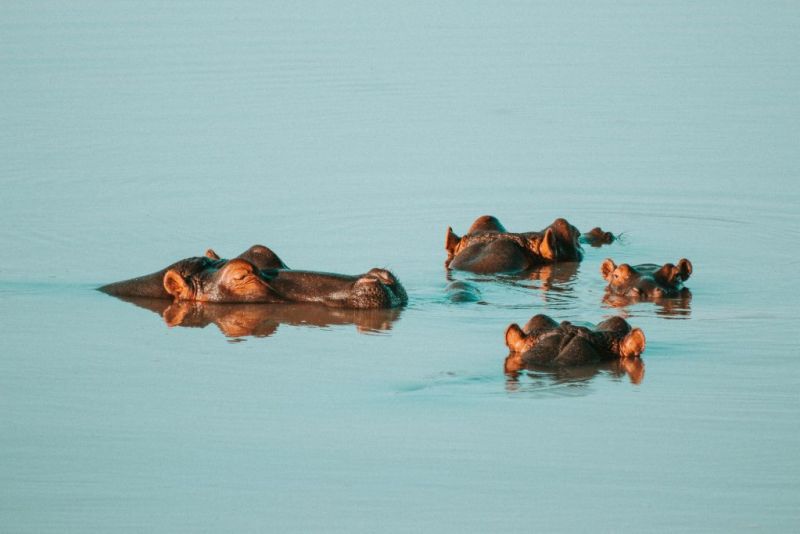
Hippos are the most dangerous of Africa's large land mammals, not lions
But wait, we must consider some other gnarly creatures before crowning our Most Dangerous Animal winner ...
The Big Five
Colonial-era hunters coined the term ‘ the Big Five ’ to identify the large game that they found to be the most dangerous when hunted on foot.
This is because these animals ( lions, bush elephants, Cape buffaloes, leopards and black rhinos ) are very aggressive when aggravated or cornered. But we don’t, of course, advocate hunting the Big Five or any other animals for that matter. Spotting them is sport enough!
Did you know that the Cape buffalo is actually considered the most dangerous of the Big Five? This is because they will actually pursue or ambush hunters when feeling under threat.
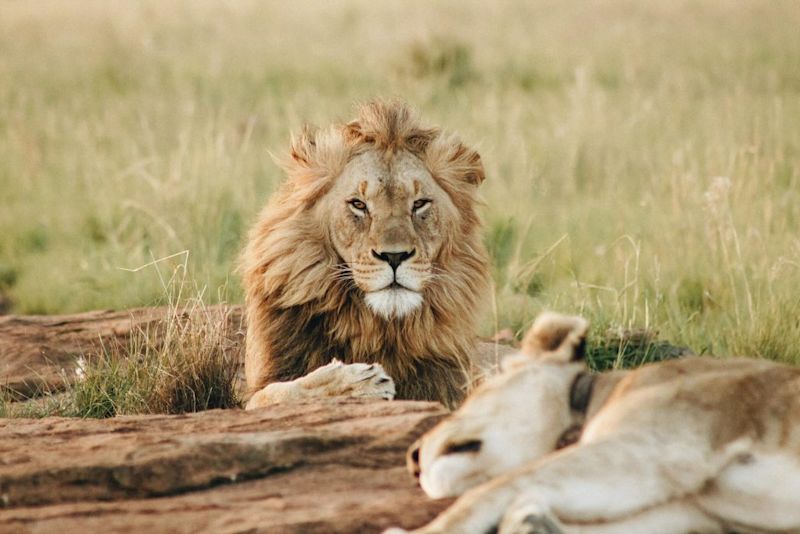
Lions are formidable predators, but they're far from being Africa's most dangerous animal
Other (surprising) contenders
But when we think of fearsome wildlife, we can't forget the terrible Nile crocodile ! These beasts have jaws almost four times stronger than those of hyenas. (Shudder.) And there's also the puff adde r, whose camouflaged skin and venom make an awful combination.
Another contender many might overlook is the honey badger . This small creature is one of the strongest, toughest and most ferocious creatures out there. In fact, a honey badger will take on pretty much any species if the need arises, from lion to leopard to hyena.
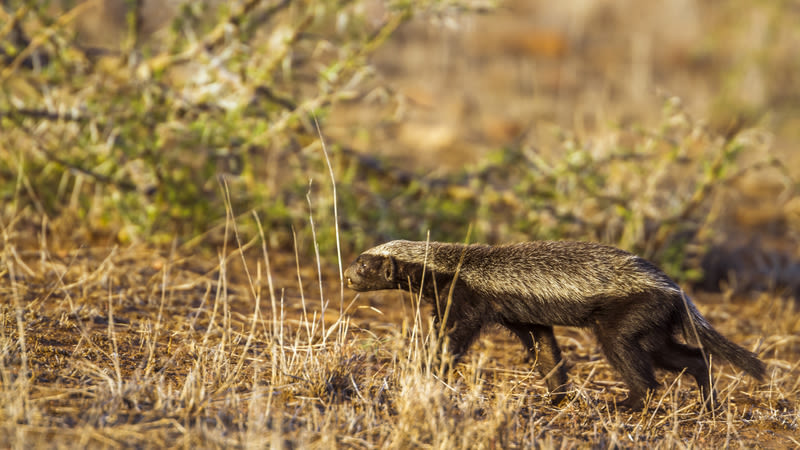
Looks can be deceiving – NEVER mess with a honey badger
Our pick for the winner
But if the most dangerous creature were to be decided purely based on the number of human fatalities, then the tiny malaria-transmitting mosquito is the most dangerous of all African animals.
Malaria is the scourge of Africa. According to WHO, it killed over 400,000 Africans in 2019.
Is malaria a problem on safari?
Most people thinking of a safari want to know if they’re safe from animals, imagining irate lions and ticked-off rhinos.
But really, it’s the tiny mosquito that presents the biggest threat.
Female anopheles mosquitoes that are infected with the malaria parasite bite and transmit the disease to hundreds of thousands of people in Africa every year.
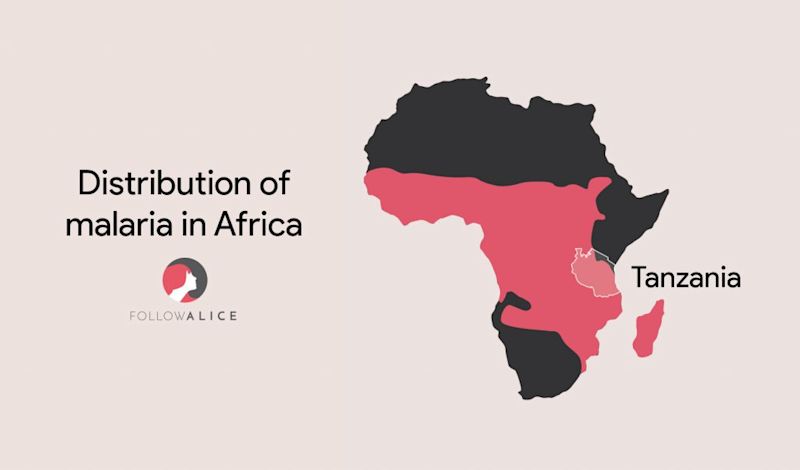
Map of malaria distribution in Africa
As you can see from the map, many African nations sit squarely in the malaria zone. So this isn’t an issue you can ignore when planning a safari. Instead, it should form an integral part of your travel prep.
How do you protect yourself against malaria?
There are two ways to protect yourself from malaria. Firstly, we recommend visiting your local GP to ask after anti-malaria meds.
Secondly, once in a malaria-risk area:
- Use insect repellent.
- Wear long pants and long sleeves, as well as closed shoes.
- Sleep under a mosquito net.
Fit for Travel has a nice page on malaria prevention that we can also recommend for learning more on this important topic.
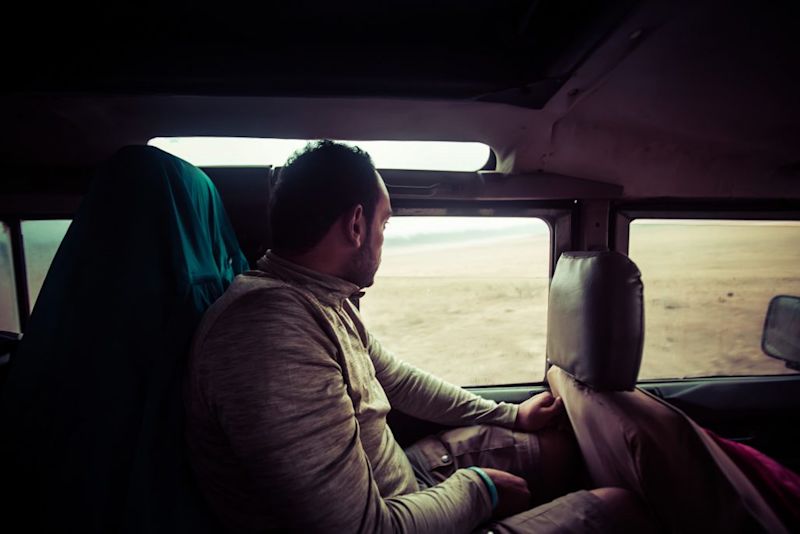
Long-sleeved shirts protect you from sunburn and mozzie bites
Which is the safest country for safari?
You also want to visit a safe country.
We discuss which African countries offer good game spotting while also being safe for tourists. We know you want to see the Big Five (elephants, lions, rhinos, buffaloes and leopards), so we highlight the safest countries containing these magnificent animals.
The main way to be safe on safari is to know what you’re doing, or travel with someone who does.
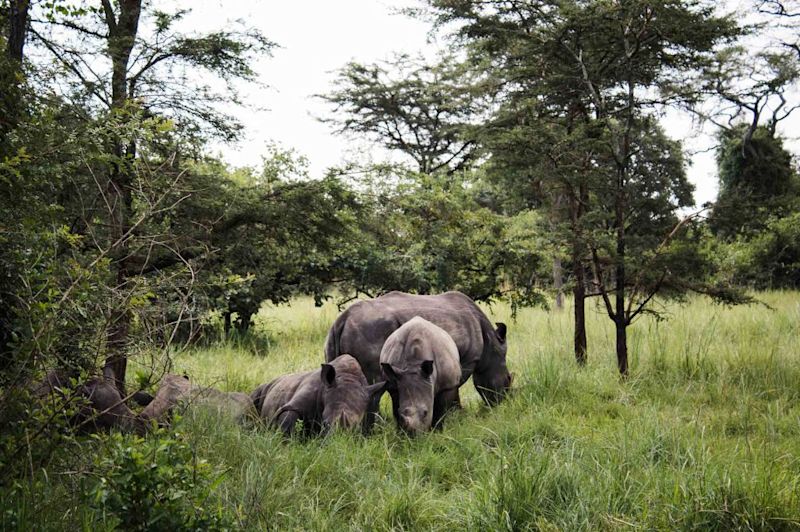
The endangered rhino is a favourite among many safari-goers
Of the African countries that offer really good safari opportunities (and contain the Big Five), the following are the safest according to both the Global Peace Index and general consensus (in alphabetical order):
- Rwanda
While some of these countries have had some security issues in recent years, those issues have been in areas far from the safari parks. In other words, they're all perfectly safe to visit when you're heading there on safari. Botswana is considered the safest of all African nations. And Zambia is ranked as the third safest nation.
We personally have no issue trotting off to any of the above-mentioned destinations. And we often do!
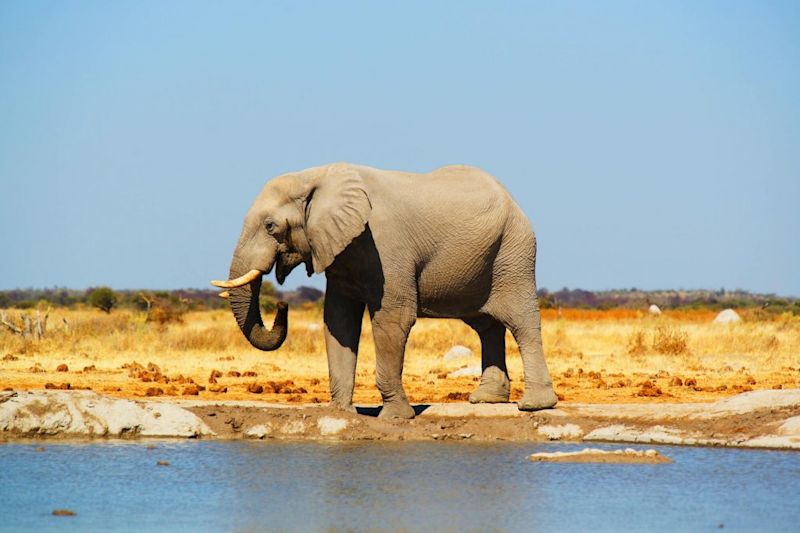
Botswana is Africa's safest country, while also being a seriously epic safari destination
6 self-drive safari tips
A big decision for would-be safari-goers is whether to do a self-drive safari or sign up for an organised one.
Some folks understandably enjoy the independence and thrill of a self-drive. That's totally fine. We just don't, however, advise going with this option unless you have done your homework thoroughly.
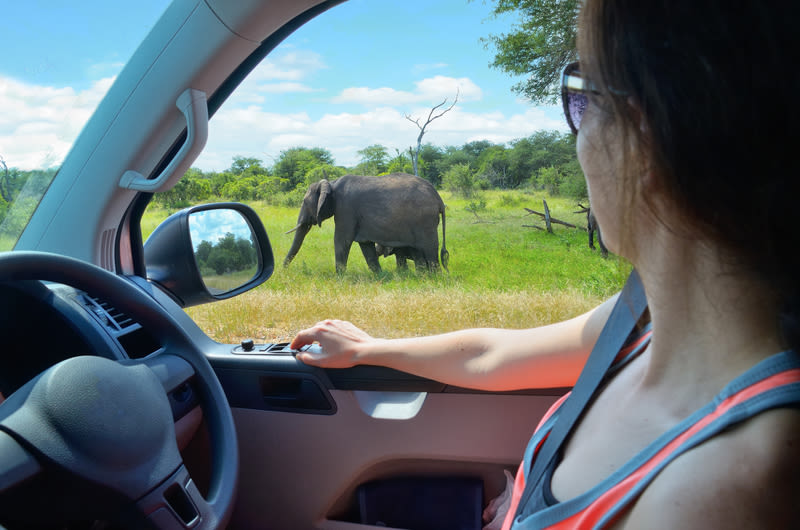
Some parks are better suited to self-drive safaris than others
You need to have a decent vehicle with high clearance to go on a game drive on your own. Depending on the terrain and condition of the roads or tracks, you might also need a four-wheel drive. Further to this, you need to know how to handle your vehicle really well in rough terrain or you could become unstuck ... by getting stuck.
Each park and reserve is different in terms of size, terrain and road conditions, so be sure to do your research first.
We recommend doing a self-drive safari only in smaller parks that have good signage and decently maintained tracks. Be really cautious of heading out on your own in wet or muddy conditions.
It's also better to do a self-drive safari only if you have GPS, or if the park has good cellphone coverage.
You should also think twice about a self-drive safari if you're heading into a very large park that isn't well-marked to help you navigate your way. Not all parks and reserves offer the same amenities, quality of roads, and so on. If you do on your own, be sure to never leave the demarcated road, not just because this usually isn't allowed, but also for your own safety.
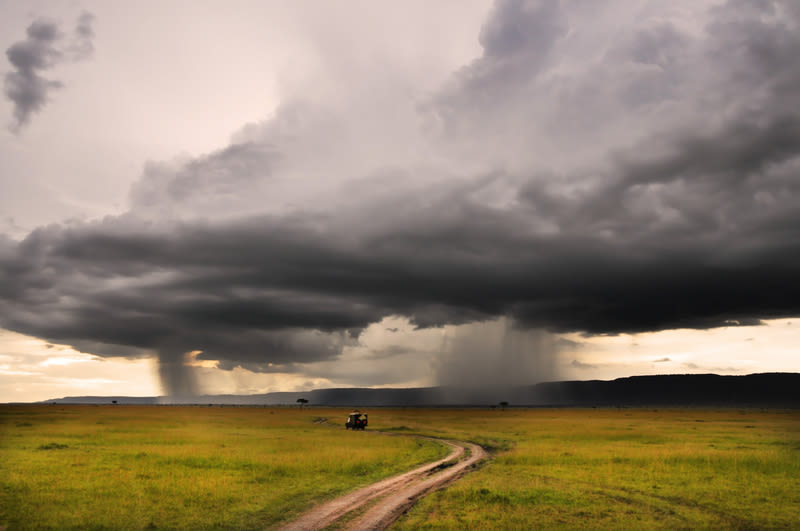
If you get lost in one of the big parks, help could well be very, very far away
Ideally, you should do a first safari drive with a guide in the passenger seat before heading out on a self-drive. Use that initial drive to quiz your driver on how to stay safe and drive in a safe manner.
Here are some further tips for those looking to do a self-drive safari:
- Never get closer than 20 m (65 ft) to large game, especially Cape buffaloes, rhinos and elephants.
- Give a wide berth to injured animals and those with young.
- Don't hoot (honk) or shout at animals to try get them to turn, raise their heads, and so on. Similarly, don't wave wildly at the animals.
- Drive very cautiously around solitary elephants and buffaloes.
- Don't rev your engine loudly around the animals, as this could startle or alarm them.
- Don't bring smelly foods like fruits in the car with you. Many animals have an excellent sense of smell, and may want a taste of what you're having.
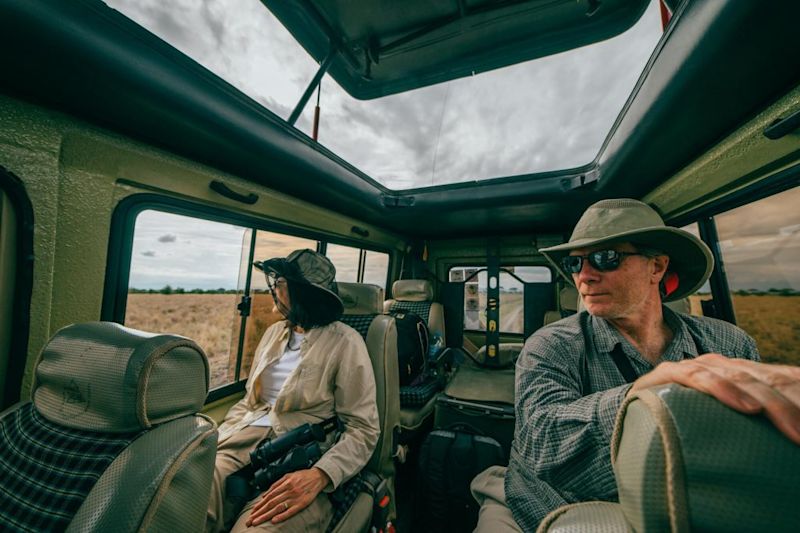
You need a 4x4 that can handle vast distances and rough terrain in order to go on safari safely
When on safari, please think of yourself as visitors in the animals' home; you should act respectfully and not make a nuisance of yourself. The less that humans interfere with the day-to-day lives of the wildlife, the better.
In fact, sometimes animals are put down after attacking people, even though it was actually the latter's fault for provoking them. Don't be the sort of human who comes on safari and leaves a legacy of death.
Most incidents in game parks occur when people grow overly confident. Respect the wildlife, remembering that it is indeed just that: wild.
Why organised safaris are safer than self-drives
Organised safaris offer many perks, such as providing you with an appropriate safari vehicle as well as a driver-cum-guide. (Safari tour operators usually organise your accommodation for you too.)
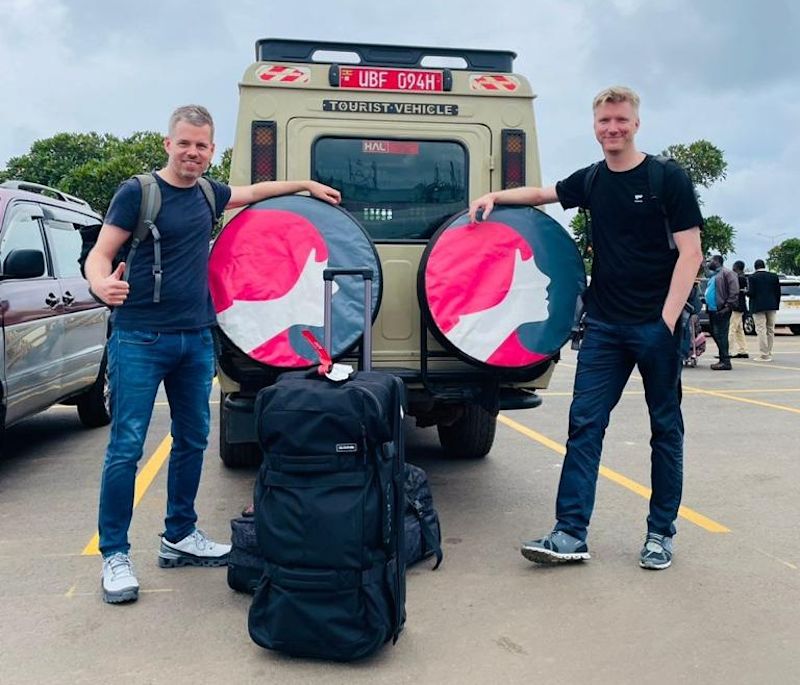
The vehicle used in a game drive is important in terms of comfort, safety and reliability
From a safety point of view, going on safari with a tour operator is a very good idea. Qualified tour guides have in-depth knowledge of how to keep you safe (in all respects).
Specifically, the safety advantages of going on safari with a trained tour guide are:
- They have the right sort of vehicle and training and so can safely and effectively navigate the often tough, muddy terrain. (Sitting in a broken-down 4x4 in a hot game park is no bueno .)
- Safari guides know which animals are dangerous, and in what ways, so they can act sensibly and advise you of what to do and not do in all situations.
- They know how close you can get to the different animals while staying safe and also not scaring them off.
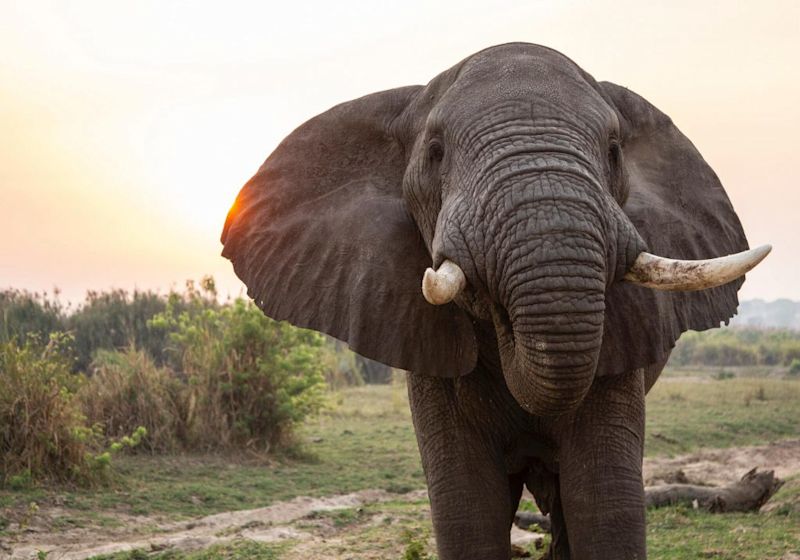
Male elephants are more aggressive during musth, a period of heightened testosterone
Further to all this, safari guides also know about the different animals' life stages and patterns. For instance, male elephants are particularly aggressive during musth (a period of heightened testosterone). So one should drive extra judiciously when in the presence of such individuals to avoid being charged.
Other perks of organised safaris
Some of the other perks of going on safari with a trained guide but that aren't related to safety are:
- Safari guides are excellent at game spotting! They'll notice and point out animals you'd otherwise have missed.
- Your guide is in touch with fellow guides and rangers about where the best animal sightings are, as well as any problem areas like a flooded road.
- They have intimate knowledge of the animals you spot, so can really make what you're seeing that much more interesting.
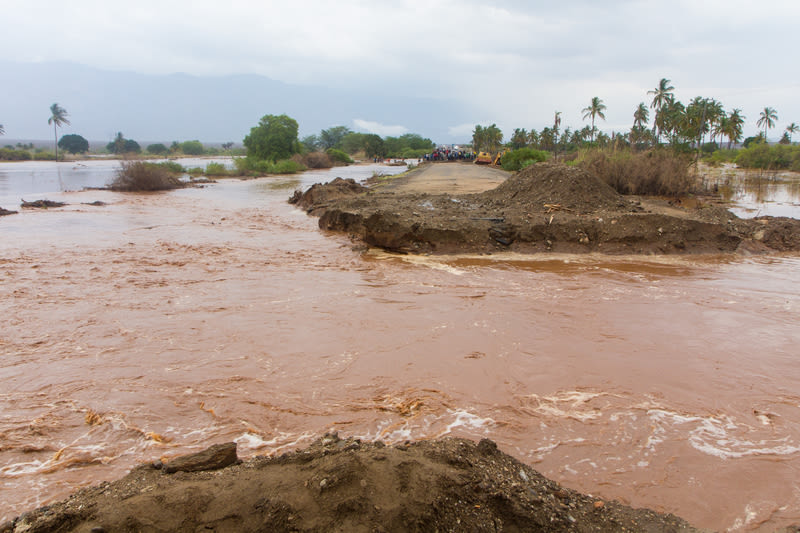
Safari guides are often in touch to alert each other to issues as well as animal sightings
Safari guides help you avoid unwittingly disruptive behaviours
If you're interested in sustainable travel (which we hope you are!), a safari guide is also invaluable in helping you to reduce the impact of your visit. For instance, did you know that you shouldn't touch the vegetation?
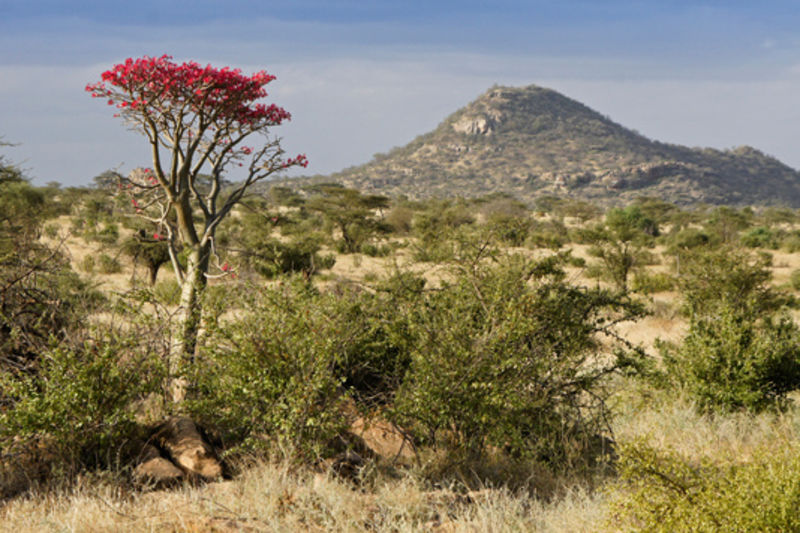
It might seen harmless, but you shouldn't touch vegetation on a safari
There are a few reasons why your touch can be damaging to certain plants, including the fact that some plants release defensive chemicals or aromatic compounds when touched by humans. These may temporarily alter the mix of scents in the air, which could potentially affect the nearby wildlife's perception of the environment.
Who knew touching a petal or leaf could have such an impact? Well, of course, a trained safari guide knows this, and will help you to avoid such potentially harmful practices!
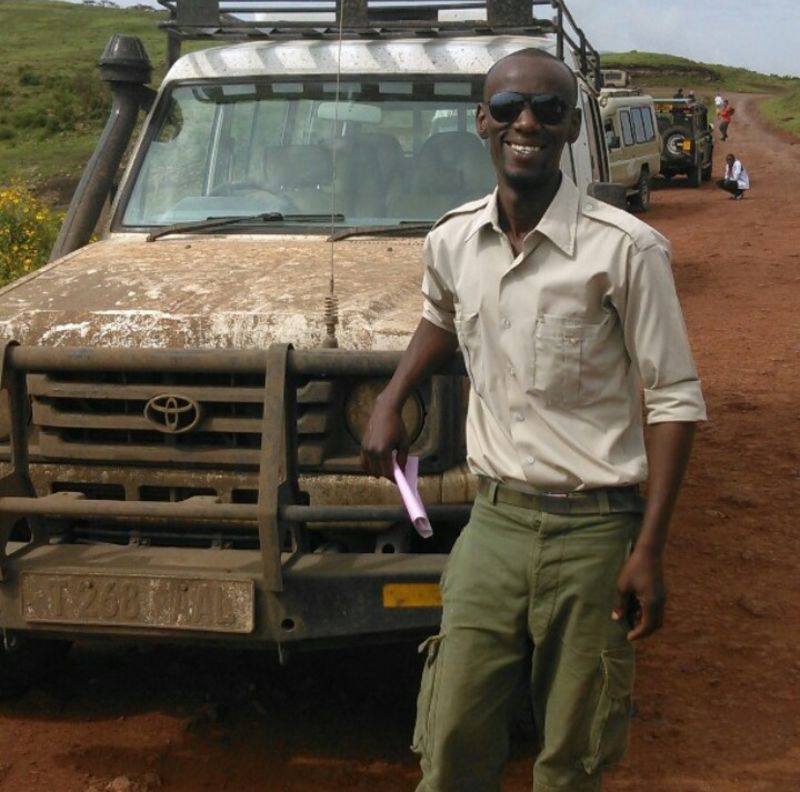
Kazi is one of our highly knowledgeable Tanzania safari guides
Don’t pay a tour company you haven’t researched
As with any industry, the safari tourism trade has its share of shysters.
There are tour operators who don’t train or pay staff properly, for instance, as well as full-on scammers and everything in between. Have nothing to do with them, both for your sake as well as for the sake of the tourism industry.
While a safari is a perfectly safe enterprise when done properly, it can quickly descend into something unpleasant, even dangerous, if not done right.
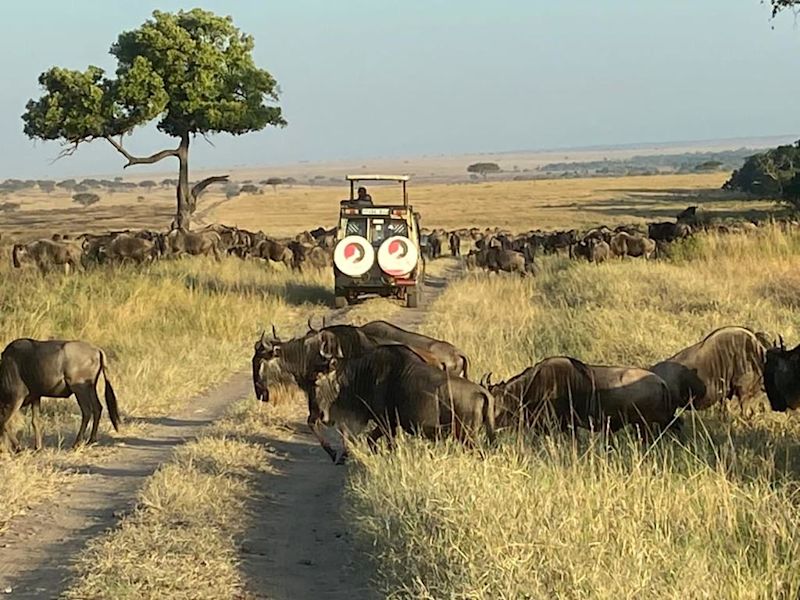
One of our FA vehicles on safari in the Serengeti
We advise that you thoroughly research any safari operator you’re considering using before forking out any money.
What does that research look like? Well, we suggest that you:
- Check some independent review platforms such as Trustpilot and look on sites like Facebook to see what past clients have to say.
- Look for a physical address on the website.
- Phone or email the company to assess their responsiveness and professionalism.
- Pay attention to your gut. Don't talk yourself into ignoring anything that doesn't feel right.
Never pay any money in advance to a company you’re not confident is fully legit.
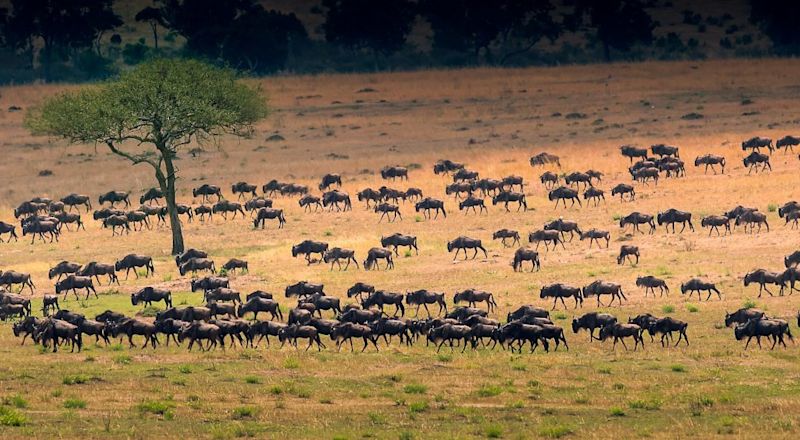
Witnessing the Great Migration, which takes place in Tanzania and Kenya, is arguably the very best African safari experience
If you're interested in perhaps doing a safari with Follow Alice, please check out our various exciting safari itineraries , which include safaris in Kenya, Tanzania, Uganda and Rwanda! You can also take a look at our Trustpilot reviews .
Safari Nation

Top ways to experience nearby attractions

Most Recent: Reviews ordered by most recent publish date in descending order.
Detailed Reviews: Reviews ordered by recency and descriptiveness of user-identified themes such as waiting time, length of visit, general tips, and location information.
Also popular with travellers

Safari Nation - All You Need to Know BEFORE You Go (2024) - Tripadvisor
- Sun - Fri 12:00 PM - 7:00 PM
- Sat - Sat 10:00 AM - 8:00 PM
- (5.02 km) Hampton Inn Winston-Salem Hanes Mall
- (5.28 km) The Historic Brookstown Inn, Trademark Collection by Wyndham
- (8.52 km) The Graylyn Estate
- (1.10 km) ✨Convenient to I-40, DT, Wake Forest, UNCSA, WSSU, Benton Center, & Hospitals✨
- (6.22 km) Kimpton Cardinal Hotel
- (0.16 km) Zaxby's
- (0.21 km) Dairi-O
- (0.23 km) Arby's
- (0.25 km) Wendy's
- (0.29 km) Papa Johns Pizza


You are here
Safari nation: a social history of the kruger national park.

Safari Nation . Cover.
© 2021 Ohio University Press
Used by permission
The copyright holder reserves, or holds for their own use, all the rights provided by copyright law, such as distribution, performance, and creation of derivative works.
Dlamini, Jacob S. T. Safari Nation: A Social History of the Kruger National Park . Ohio: Ohio University Press, 2021.
Safari Nation opens new lines of inquiry in the study of national parks in Africa and the rest of the world. The Kruger National Park is South Africa’s most iconic nature reserve, renowned for its rich flora and fauna. According to author Jacob Dlamini, there is another side to the park, a social history neglected by scholars and popular writers alike in which blacks (meaning Africans, Coloureds, and Indians) occupy center stage. Safari Nation details the ways in which black people devoted energies to conservation and to the park over the course of the twentieth century—engagement that transcends the stock (black) figure of the laborer and the poacher. By exploring the complex and dynamic ways in which blacks of varying class, racial, religious, and social backgrounds related to the Kruger National Park, and with the help of previously unseen archival photographs, Dlamini’s narrative also sheds new light on how and why Africa’s national parks—often derided by scholars as colonial impositions—survived the end of white rule on the continent. Relying on oral histories, photographs, and archival research, Safari Nation engages both with African historiography and with ongoing debates about the “land question,” democracy, and citizenship in South Africa. (Source: Ohio University Press )
Jacob Dlamini is assistant professor of history at Princeton University and is a qualified field guide.
© 2021 Ohio University Press. Used by permission.
- Book profile at Ohio University Press
- “South African Eden – The Kruger National Park,” by Jane Carruthers
- Print page to PDF
- environmental justice
- national parks
Recent Multimedia Items
Bruce Lehrmann: Australian judge finds staffer raped colleague in parliament office
- Medium Text
DEFAMATION LAWS
The Reuters Daily Briefing newsletter provides all the news you need to start your day. Sign up here.
Reporting by Alasdair Pal; Additional reporting by Byron Kaye; Editing by Jamie Freed
Our Standards: The Thomson Reuters Trust Principles. New Tab , opens new tab

Thomson Reuters
Alasdair leads the team covering breaking news in Australia, New Zealand and the Pacific. Before moving to Sydney, he covered general news in New Delhi, where he reported from the front-line of the coronavirus pandemic in India and the insurgency in Kashmir, as well as extended periods in Pakistan and, most recently, in Sri Lanka covering its ongoing economic crisis. His reporting on Islamic State suicide bombings in Sri Lanka in 2019 was highly commended as the Society of Publishers in Asia awards. He previously worked as a financial reporter in London, with a particular interest in hedge funds and accounting frauds. Signal app phone number: +61439529540
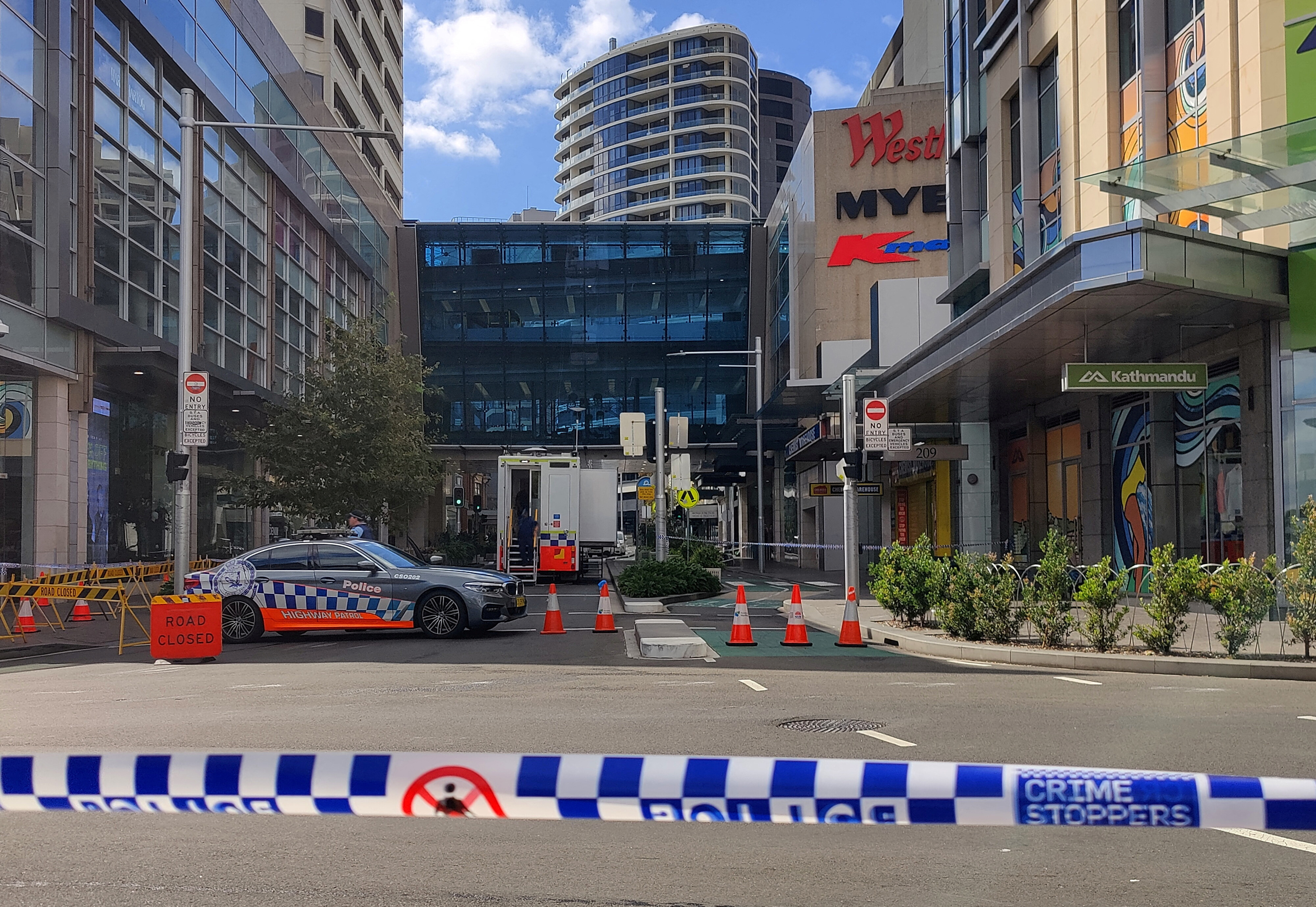
Azerbaijan asked the U.N.'s top court on Monday to throw out a case brought by its Caucasus neighbour Armenia accusing it of ethnic cleansing and violating a U.N. anti-discrimination treaty.

World Chevron

Israel says it shot down Iranian salvo 'shoulder-to-shoulder' with U.S.
Israel's repelling of a massive Iranian drone and missile salvo was fully coordinated with the Pentagon, which had a U.S. operational liaison officer in the control room of the Arrow ballistic air defence system, a senior Israeli official said.

A number of people were injured in a stabbing at a church in Walkley, about 30 km (18 miles) west of the Sydney central business district, police authorities said on Monday.
Abortion in Arizona set to be illegal in nearly all circumstances, state high court rules
Leer en Español
The Arizona Supreme Court on Tuesday upheld a 160-year-old law that bans abortions and punishes doctors who provide them, saying the ban that existed before Arizona became a state can be enforced going forward.
The ruling indicated the ban cannot be retroactively enforced, and the court stayed enforcement for 14 days.
But the shocking ruling quickly caused political earthquakes.
"There really is no way to sugarcoat it, today is a dark day for Arizona," said Angela Florez, president and CEO of Planned Parenthood Arizona.
The pre-statehood law mandates two to five years in prison for anyone aiding an abortion, except if the procedure is necessary to save the life of the mother. A law from the same era requiring at least a year in prison for a woman seeking an abortion was repealed in 2021 .
Arizona politics: Vice President Kamala Harris returning to Arizona for abortion-related campaign event
Enforcement of the ban could mean the end of legal abortions in Arizona, which reproductive rights activists warn means Arizona women can expect potential health complications.
In the wake of the ruling, some providers said they will continue offering abortions up to 15 weeks of pregnancy at least for a time — likely through May — because of an existing court ruling in another case. And, abortion rights advocates see a backstop in the state's top Democrats, who have taken steps to thwart any enforcement of the ban.
Democratic Gov. Katie Hobbs issued an executive order last year giving all power to enforce abortion laws to the state attorney general instead of county prosecutors. Attorney General Kris Mayes, also a Democrat, has vowed not to prosecute any abortion case, and she reaffirmed that position Tuesday.
“No woman or doctor will be prosecuted under this law as long as I am attorney general," Mayes said. "Not by me, nor by any county attorney serving in our state, not on my watch.”
Mayes and Hobbs' stance relies on an untested legal argument, and could be challenged by one of the state's county attorneys .
'Abortions ... are illegal,' court says
The decision was 4-2, with Justices John R. Lopez IV, Clint Bolick, James P. Beene and Kathryn H. King in the majority. Lopez wrote the majority opinion, while Vice Chief Justice Ann A. Scott Timmer penned a dissent. Chief Justice Robert M. Brutinel joined Timmer. The court's seventh justice, William G. Montgomery, recused himself from the case.
All of Arizona's justices were appointed by Republican governors.
"Physicians are now on notice that all abortions, except those necessary to save a woman’s life, are illegal ... and that additional criminal and regulatory sanctions may apply to abortions performed after fifteen weeks’ gestation," the ruling reads.
The majority ruled that a law passed by the Arizona Legislature in 2022, which prohibited abortions after 15 weeks, did not repeal the pre-statehood law nor create a right to abortion. The majority relied on language in the bill that enacted that law, which said it did not " repeal, by implication or otherwise " the pre-statehood ban.
The court concluded "the legislature made its intent known," in part through "an unwavering intent since 1864 to proscribe elective abortions." And the court said the overturning of Roe v. Wade, which left no constitutional right to an abortion, made Arizona's ban enforceable.
"The legislature has demonstrated its consistent design to restrict elective abortion to the degree permitted" prior to Roe being overturned, the opinion says.
“Life is a human right, and today’s decision allows the state to respect that right and fully protect life again — just as the Legislature intended,” said Alliance Defending Freedom senior counsel Jake Warner, who argued the case before the court in favor of the pre-statehood ban.
Timmer, in her dissent, wrote that the 2022 law prohibiting most abortions after 15 weeks was meant to create an exception to the pre-statehood law and was not contingent on Roe v. Wade.
She objected to the majority using the bill language to interpret the Legislature's intent, saying she would not "engage in the guesswork" they did and that it was "implausible to conclude the legislature planted within the (bill) a bombshell of reverting to a near–total ban on abortion."
"The statute says what it means and means what it says: The state will prosecute physicians for performing abortions after the fetus reaches fifteen weeks in age unless a medical emergency requires the procedure. The state will not prosecute physicians for performing abortions before the fetus reaches fifteen weeks in age. These abortions are lawful. There is no room for misunderstanding."
One effect of the ruling could be more support for a ballot measure in the works for this year to put abortion access into the Arizona Constitution. Advocates say they've already got more than 500,000 signatures , well above the threshold of 383,923 signatures needed by an early July deadline.
“We were expecting the worst and hoping for the best, but we have to keep moving forward," said Chris Love, a spokesperson for the ballot measure known as Arizona for Abortion Access. "We have an opportunity to change things at the ballot in November.”
The state Supreme Court's ruling puts a stark choice before voters: Choose the new reproductive rights measure or watch abortion policy turn back to the 19th century.
That black-and-white choice, as well as an anticipated increase in turnout by Democrats because of the ballot measure, could also affect races in the state Legislature or other offices.
Hobbs said Tuesday the ruling left Arizona with "one of the most extreme abortion bans in the country,” and she called on the GOP-led Legislature to immediately repeal the 1864 ban.
“The Republicans at the Legislature have time and again refused to act to protect our freedoms,” Hobbs said, as she stood with more than a dozen Democratic lawmakers. Hobbs had pledged to spend six figures to unseat those Republican lawmakers, who are all on the ballot this year.
When does the ruling go into effect?
The highly anticipated ruling came as a shock to many abortion rights advocates in a state where abortion access has been uncertain ever since the U.S. Supreme Court overturned Roe v. Wade, and abortion rights, in 2022. Because of Arizona's two laws, clinics provided abortions off and on for a time, subject to the decisions of courts along the way.
A new element of uncertainty emerged Tuesday even after the ruling from the state's top court, as various involved groups offered differing timelines for when enforcement could begin.
Warner said he believed county attorneys could pursue cases when the court's stay expires in 14 days.
But Planned Parenthood Arizona and the American Civil Liberties Union of Arizona said the law cannot be enforced for 45 days after the court issues a final mandate, which has not yet happened. That view was also shared by some abortion opponents, including GOP legislative leaders and the Center for Arizona Policy, who said they believe enforcement cannot occur until later.
That's because of a separate court decision from Maricopa County, in which the state's former attorney general, Republican Mark Brnovich, agreed not to enforce the 1864 law until 45 days after the current case had been resolved . That agreement came in October 2022.
Cathi Herrod, president of the conservative Center for Arizona Policy, praised the court's decision.
"The Arizona Supreme Court reached the appropriate legal conclusion," she said in a statement. "Today’s outcome acknowledges the sanctity of all human life and spares women the physical and emotional harms of abortion. ... Today’s decision preserves a system designed to be blind to all but the law, and in doing so, it upholds the right of life for all Arizonans."
Planned Parenthood Arizona: Abortions up to 15 weeks will remain legal for a limited time, Arizona providers say
US Supreme Court ruling paved way for return of 1864 law
The abortion ban first codified in Arizona law in 1864 has been sitting on the books for 160 years.
First appearing in the 1864 Howell Code, a book of laws compiled by Arizona's First Territorial Legislature, the state's abortion ban was similar to those in many states. It was enforced vigorously in Arizona until the Roe v. Wade decision in 1973.
In 1971, Planned Parenthood of Tucson sued the state to overturn the old ban. The group lost the case in 1973 when the state Court of Appeals ruled against it. But the U.S. Supreme Court issued its historic Roe v. Wade decision the same year, causing the state Court of Appeals to issue an injunction against the pre-statehood ban.
For almost 50 years, legal abortions were considered a fact of American life, until the Dobbs v. Jackson Women's Health Organization ruling in June 2022 that removed the Roe protections.
The ruling by the new, more conservative U.S. Supreme Court spurred Arizona Republican politicians to ask the courts to lift the injunction from 1973 and allow police and prosecut o rs to enforce the 1864 law. The new court action had the effect of renewing Planned Parenthood's 1971 legal fight.
The Arizona Supreme Court recognized all that was unsettled in implementing its 14-day stay before the 1864 law can be enforced. That window allows any legal challenges that were started in 1971, but essentially put on hold because of Roe v. Wade, to be pursued again now, over 50 years later.
Mayes said her office was weighing its response. The state's top court sent the case back to the original Superior Court, in Pima County, to consider the possibility of further action.
“My office is, as we speak, discussing what our next steps are, whether that is appealing this decision to the United States Supreme Court, whether that is taking ... the constitutional questions that remain, back down to the Superior Court," Mayes said.
Republic reporters Mary Jo Pitzl, Reagan Priest and Stephanie Innes contributed to this article.
Reach reporter Stacey Barchenger at [email protected] or 480-416-5669 . Reach the reporter at [email protected] or 480-276-3237. Follow him on X @raystern .

An official website of the United States government
Here’s how you know
Official websites use .gov A .gov website belongs to an official government organization in the United States.
Secure .gov websites use HTTPS A lock ( Lock A locked padlock ) or https:// means you’ve safely connected to the .gov website. Share sensitive information only on official, secure websites.
JavaScript appears to be disabled on this computer. Please click here to see any active alerts .
- Headquarters | Water (OW)
Biden-Harris Administration Finalizes First-Ever National Drinking Water Standard to Protect 100M People from PFAS Pollution
As part of the Administration’s commitment to combating PFAS pollution, EPA announces $1B investment through President Biden’s Investing in America agenda to address PFAS in drinking water
April 10, 2024
WASHINGTON - Today, April 10, the Biden-Harris Administration issued the first-ever national, legally enforceable drinking water standard to protect communities from exposure to harmful per-and polyfluoroalkyl substances (PFAS), also known as ‘forever chemicals.’ Exposure to PFAS has been linked to deadly cancers, impacts to the liver and heart, and immune and developmental damage to infants and children. This final rule represents the most significant step to protect public health under EPA’s PFAS Strategic Roadmap . The final rule will reduce PFAS exposure for approximately 100 million people, prevent thousands of deaths, and reduce tens of thousands of serious illnesses. Today’s announcement complements President Biden’s government-wide action plan to combat PFAS pollution.
Through President Biden’s Investing in America agenda, EPA is also making unprecedented funding available to help ensure that all people have clean and safe water. In addition to today’s final rule, EPA is announcing nearly $1 billion in newly available funding through the Bipartisan Infrastructure Law to help states and territories implement PFAS testing and treatment at public water systems and to help owners of private wells address PFAS contamination. This is part of a $9 billion investment through the Bipartisan Infrastructure Law to help communities with drinking water impacted by PFAS and other emerging contaminants – the largest-ever investment in tackling PFAS pollution. An additional $12 billion is available through the Bipartisan Infrastructure Law for general drinking water improvements, including addressing emerging contaminants like PFAS.
EPA Administrator Michael Regan will join White House Council on Environmental Quality Chair Brenda Mallory to announce the final standard today at an event in Fayetteville, North Carolina. In 2017, area residents learned that the Cape Fear River, the drinking water source for 1 million people in the region, had been heavily contaminated with PFAS pollution from a nearby manufacturing facility. Today’s announcements will help protect communities like Fayetteville from further devastating impacts of PFAS.
“Drinking water contaminated with PFAS has plagued communities across this country for too long,” said EPA Administrator Michael S. Regan . “That is why President Biden has made tackling PFAS a top priority, investing historic resources to address these harmful chemicals and protect communities nationwide. Our PFAS Strategic Roadmap marshals the full breadth of EPA’s authority and resources to protect people from these harmful forever chemicals. Today, I am proud to finalize this critical piece of our Roadmap, and in doing so, save thousands of lives and help ensure our children grow up healthier.”
“President Biden believes that everyone deserves access to clean, safe drinking water, and he is delivering on that promise,” said Brenda Mallory, Chair of the White House Council on Environmental Quality . “The first national drinking water standards for PFAS marks a significant step towards delivering on the Biden-Harris Administration’s commitment to advancing environmental justice, protecting communities, and securing clean water for people across the country.”
“Under President Biden’s leadership, we are taking a whole-of-government approach to tackle PFAS pollution and ensure that all Americans have access to clean, safe drinking water. Today’s announcement by EPA complements these efforts and will help keep our communities safe from these toxic ‘forever chemicals,’” said Deputy Assistant to the President for the Cancer Moonshot, Dr. Danielle Carnival . “Coupled with the additional $1 billion investment from President Biden’s Investing in America agenda to help communities address PFAS pollution, the reductions in exposure to toxic substances delivered by EPA’s standards will further the Biden Cancer Moonshot goal of reducing the cancer death rate by at least half by 2047 and preventing more than four million cancer deaths — and stopping cancer before it starts by protecting communities from known risks associated with exposure to PFAS and other contaminants, including kidney and testicular cancers, and more.”
EPA is taking a signature step to protect public health by establishing legally enforceable levels for several PFAS known to occur individually and as mixtures in drinking water. This rule sets limits for five individual PFAS: PFOA, PFOS, PFNA, PFHxS, and HFPO-DA (also known as “GenX Chemicals”). The rule also sets a limit for mixtures of any two or more of four PFAS: PFNA, PFHxS, PFBS, and “GenX chemicals.” By reducing exposure to PFAS, this final rule will prevent thousands of premature deaths, tens of thousands of serious illnesses, including certain cancers and liver and heart impacts in adults, and immune and developmental impacts to infants and children.
This final rule advances President Biden’s commitment to ending cancer as we know it as part of the Biden Cancer Moonshot, to ensuring that all Americans have access to clean, safe, drinking water, and to furthering the Biden-Harris Administration’s commitment to environmental justice by protecting communities that are most exposed to toxic chemicals.
EPA estimates that between about 6% and 10% of the 66,000 public drinking water systems subject to this rule may have to take action to reduce PFAS to meet these new standards. All public water systems have three years to complete their initial monitoring for these chemicals. They must inform the public of the level of PFAS measured in their drinking water. Where PFAS is found at levels that exceed these standards, systems must implement solutions to reduce PFAS in their drinking water within five years.
The new limits in this rule are achievable using a range of available technologies and approaches including granular activated carbon, reverse osmosis, and ion exchange systems. For example, the Cape Fear Public Utility Authority, serving Wilmington, NC – one of the communities most heavily impacted by PFAS contamination – has effectively deployed a granular activated carbon system to remove PFAS regulated by this rule. Drinking water systems will have flexibility to determine the best solution for their community.
EPA will be working closely with state co-regulators in supporting water systems and local officials to implement this rule. In the coming weeks, EPA will host a series of webinars to provide information to the public, communities, and water utilities about the final PFAS drinking water regulation. To learn more about the webinars, please visit EPA’s PFAS drinking water regulation webpage . EPA has also published a toolkit of communications resources to help drinking water systems and community leaders educate the public about PFAS, where they come from, their health risks, how to reduce exposure, and about this rule.
“We are thankful that Administrator Regan and the Biden Administration are taking this action to protect drinking water in North Carolina and across the country,” said North Carolina Governor Roy Cooper . “We asked for this because we know science-based standards for PFAS and other compounds are desperately needed.”
“For decades, the American people have been exposed to the family of incredibly toxic ‘forever chemicals’ known as PFAS with no protection from their government. Those chemicals now contaminate virtually all Americans from birth. That’s because for generations, PFAS chemicals slid off of every federal environmental law like a fried egg off a Teflon pan — until Joe Biden came along,” said Environmental Working Group President and Co-Founder Ken Cook . “We commend EPA Administrator Michael Regan for his tireless leadership to make this decision a reality, and CEQ Chair Brenda Mallory for making sure PFAS is tackled with the ‘whole of government’ approach President Biden promised. There is much work yet to be done to end PFAS pollution. The fact that the EPA has adopted the very strong policy announced today should give everyone confidence that the Biden administration will stay the course and keep the president’s promises, until the American people are protected, at long last, from the scourge of PFAS pollution.”
“We learned about GenX and other PFAS in our tap water six years ago. I raised my children on this water and watched loved ones suffer from rare or recurrent cancers. No one should ever worry if their tap water will make them sick or give them cancer. I’m grateful the Biden EPA heard our pleas and kept its promise to the American people. We will keep fighting until all exposures to PFAS end and the chemical companies responsible for business-related human rights abuses are held fully accountable,” said Emily Donovan, co-founder of Clean Cape Fear.
More details about funding to address PFAS in Drinking Water
Through the Bipartisan Infrastructure Law, EPA is making an unprecedented $21 billion available to strengthen our nation’s drinking water systems, including by addressing PFAS contamination. Of that, $9 billion is specifically for tackling PFAS and emerging contaminants. The financing programs delivering this funding are part of President Biden’s Justice40 Initiative , which set the goal that 40% of the overall benefits of certain federal investments flow to disadvantaged communities that have been historically marginalized by underinvestment and overburdened by pollution.
Additionally, EPA has a nationwide Water Technical Assistance program to help small, rural, and disadvantaged communities access federal resources by working directly with water systems to identify challenges like PFAS; develop plans; build technical, managerial, and financial capacity; and apply for water infrastructure funding. Learn more about EPA’s Water Technical Assistance programs .
More details about the final PFAS drinking water standards:
- For PFOA and PFOS, EPA is setting a Maximum Contaminant Level Goal, a non-enforceable health-based goal, at zero. This reflects the latest science showing that there is no level of exposure to these contaminants without risk of health impacts, including certain cancers.
- EPA is setting enforceable Maximum Contaminant Levels at 4.0 parts per trillion for PFOA and PFOS, individually. This standard will reduce exposure from these PFAS in our drinking water to the lowest levels that are feasible for effective implementation.
- For PFNA, PFHxS, and “GenX Chemicals,” EPA is setting the MCLGs and MCLs at 10 parts per trillion.
- Because PFAS can often be found together in mixtures, and research shows these mixtures may have combined health impacts, EPA is also setting a limit for any mixture of two or more of the following PFAS: PFNA, PFHxS, PFBS, and “GenX Chemicals.”
EPA is issuing this rule after reviewing extensive research and science on how PFAS affects public health, while engaging with the water sector and with state regulators to ensure effective implementation. EPA also considered 120,000 comments on the proposed rule from a wide variety of stakeholders.
Background:
PFAS, also known as ‘forever chemicals,’ are prevalent in the environment. PFAS are a category of chemicals used since the 1940s to repel oil and water and resist heat, which makes them useful in everyday products such as nonstick cookware, stain resistant clothing, and firefighting foam. The science is clear that exposure to certain PFAS over a long period of time can cause cancer and other illnesses. In addition, PFAS exposure during critical life stages such as pregnancy or early childhood can also result in adverse health impacts.
Across the country, PFAS contamination is impacting millions of people’s health and wellbeing. People can be exposed to PFAS through drinking water or food contaminated with PFAS, by coming into contact with products that contain PFAS, or through workplace exposures in certain industries.
Since EPA Administrator Michael S. Regan announced the PFAS Strategic Roadmap in October 2021, EPA has taken action – within the Biden-Harris Administration’s whole-of-government approach – by advancing science and following the law to safeguard public health, protect the environment, and hold polluters accountable. The actions described in the PFAS Strategic Roadmap each represent important and meaningful steps to protect communities from PFAS contamination. Cumulatively, these actions will build upon one another and lead to more enduring and protective solutions. In December 2023, the EPA released its second annual report on PFAS progress . The report highlights significant accomplishments achieved under the EPA’s PFAS Strategic Roadmap.
Safari Nation
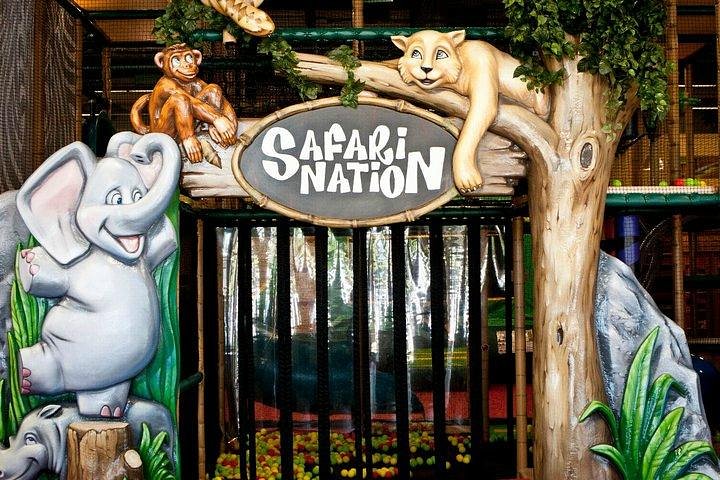
Top ways to experience nearby attractions

Most Recent: Reviews ordered by most recent publish date in descending order.
Detailed Reviews: Reviews ordered by recency and descriptiveness of user-identified themes such as wait time, length of visit, general tips, and location information.
Also popular with travelers
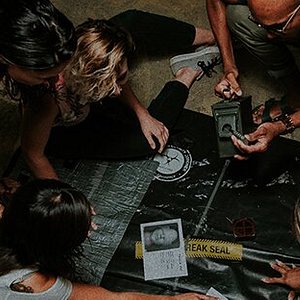
Safari Nation - All You Need to Know BEFORE You Go (2024)
- Sun - Fri 12:00 PM - 7:00 PM
- Sat - Sat 10:00 AM - 8:00 PM
- (1.87 mi) O.Henry Hotel
- (2.21 mi) Proximity Hotel
- (2.16 mi) Fairfield Inn & Suites by Marriott Greensboro Wendover
- (1.90 mi) Hampton Inn & Suites Greensboro/Coliseum Area
- (2.64 mi) Hotel Denim
- (0.01 mi) Nostra Pizza
- (0.01 mi) Mythos Grill
- (0.02 mi) A Special Blend
- (0.07 mi) China Express
- (0.29 mi) Nazareth Bread

- Become a Franchisee
- Virus Update
- [email protected]
- 336-315-5115
- Birthday Parties
- Group Bookings
- Coupons & Deals
- Toddler Playground
- Bounce House
- Arcade Games
- Winston-Salem
- Sign waiver!
- Nearest Location
Jungle Rules
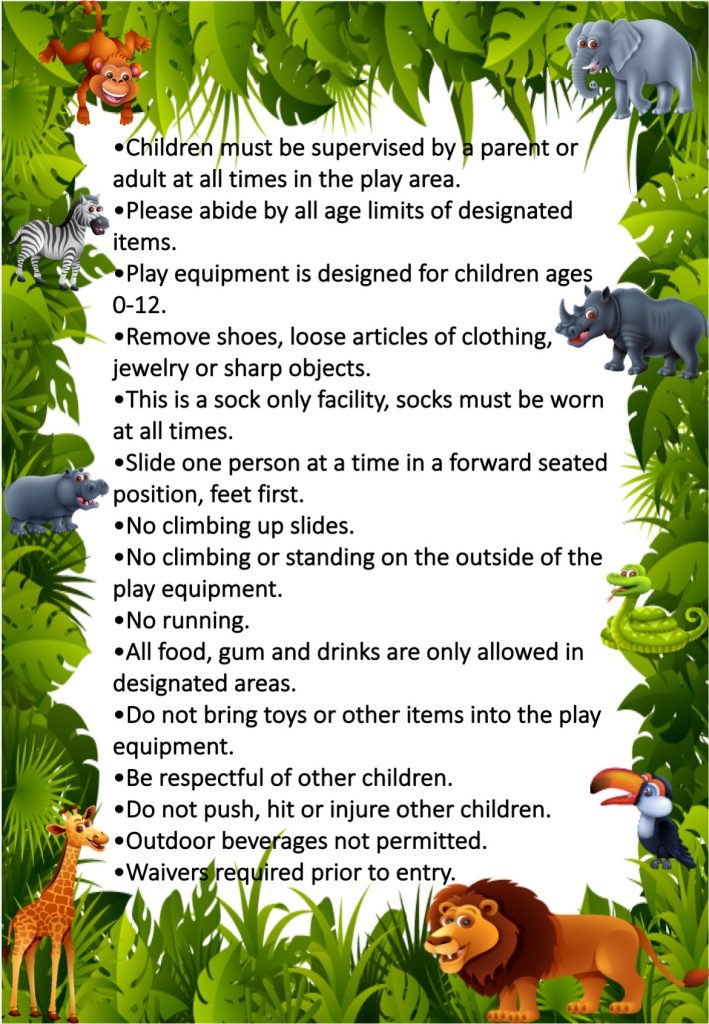
Copyright © 2018 Safari Nation All Rights Reserved. Website Designed & Developed By Eglogics

- Gift Vouchers WS
Watch CBS News
Cryptocurrency is making lots of noise, literally
By David Pogue
Updated on: April 14, 2024 / 5:27 PM EDT / CBS News
Seven years ago, Gladys Anderson bought her dream home in Bono, Arkansas. "We moved out here to get away from the busyness of town, the noise," she said. "Just peace and quiet, country living."
But last May, the quiet ended, when the noise began. "It was like torture, like a form of military-grade torture," she said.
It's the sound of 17,000 computer fans in a bitcoin facility next door.
Neighbor Shane Markuson takes frequent decibel readings. "Eighty-two was the highest number," he said. [Note, a hair dryer is 90 decibels .]
"It's caused problems for me with my hearing, my blood pressure, with the sweetheart where she gets migraine headaches," Markuson said.
The residents can't even move away. "I don't know who'd wanna buy my house or buy my place," Markuson said. "You know, with this kind of noise, would you wanna live next to it?"
Anderson said she has contacted officials about the noise: "I have spoken to the county judge's office, the county administrator, I have called the governor's office several times. And I know hundreds of other people have called about it."
Asked why she thought nothing has been done, Anderson replied, "Money. It's money."
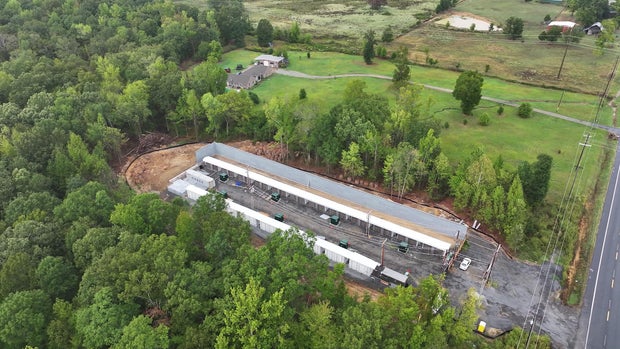
And it is money, specifically cryptocurrency.
Bitcoin is a digital currency with no centralized bank. Instead, transactions are confirmed by huge banks of computers, run by people called miners. As an incentive to set up these facilities, the system periodically rewards the miners with freshly-minted bitcoins worth hundreds of thousands of dollars.
But all those computers burn staggering amounts of power—and make a lot of noise.
Last year, Arkansas passed what's become known as the "Right to Mine" bill . It prevents local communities from regulating these operations.
Republican State Senator Joshua Bryant was the bill's chief sponsor. "We've got a business-friendly state," he said. "We've got inexpensive land. We've got affordable power. And that is the perfect combination to be a cheap date for this industry."
Bryant figured that bitcoin mining would be good for the state, but there were some unintended consequences. "What we found is that operators started operating in a manner that was not giving quiet enjoyment to the neighbors." He points out that not all bitcoin plants are noisy.
Arkansas Bitcoin miner Ben Smith says that mining plants can be very quiet – cooled by water instead of fans, built far from residential areas, and fully enclosed, rather than open-air. "I would say roughly probably half the sites in Arkansas are owned by the per se bad actors," said Smith. "It's all about design and, honestly, how much money you're gonna put in to be a good neighbor or good actor."
So, who's building all of those cheap, noisy plants? Senator Bryant says it's a web of Chinese companies , with ties all the way to the Chinese government. The New York Times reports that Chinese bitcoin mines are now running in at least 14 states.
- Across U.S., Chinese bitcoin mines draw national security scrutiny (New York Times)
But the Chinese government isn't the only invisible hand here. The "right to mine" bill itself was drafted by a bitcoin advocacy group , the Satoshi Action Fund , that's pushing similar bills in at least 12 other states.
In Arkansas, even Senator Bryant concedes that his bill needs fixing. "We are looking at a state law that will, you know, ultimately require these crypto operations to not generate noise," he said.
Meanwhile, Gladys Anderson and her neighbors are suing. "We've set up a GoFundMe; we've done some raffles," she said. "We most recently sold smoked pork butts."
The Bono plant's lawyers say that the volume is within local limits, and said in a statement to "CBS Sunday Morning" that "Our client is currently developing design plans to fully enclose the site … within a matter of months."
- Full statement from NewRays One LLC
Bitcoin Mine_Anderson vs Ne... by david.morgan
Well, good, because Gladys Anderson won't be giving up: "I am a very stubborn woman, and I'm a very scornful woman," she said. "I will become just as big of a headache for them, because they're setting up everywhere."
For more info:
- Arkansas State Senator Joshua Bryant
- Crypto investor Ben Smith on Twitter/X
- Docket: Anderson v. Newrays One LLC (Court Listener)
- Arkansas Blockchain Council
Story produced by Amol Mhatre. Editor: Mike Levine.
See also:
- "Crypto for dummies": The how, what and why of using virtual currency ("Sunday Morning")
- Bitcoin mining and its environmental costs ("Sunday Morning")
- Bitcoin billionaires Cameron and Tyler Winklevoss ("Sunday Morning")
- Cryptocurrency

David Pogue is a six-time Emmy winner for his stories on "CBS Sunday Morning," where he's been a correspondent since 2002. He's also a New York Times bestselling author, a five-time TED speaker, and host of 20 NOVA science specials on PBS. For 13 years, he wrote a New York Times tech column every week — and for 10 years, a Scientific American column every month.
More from CBS News

Public domain, where there is life after copyright
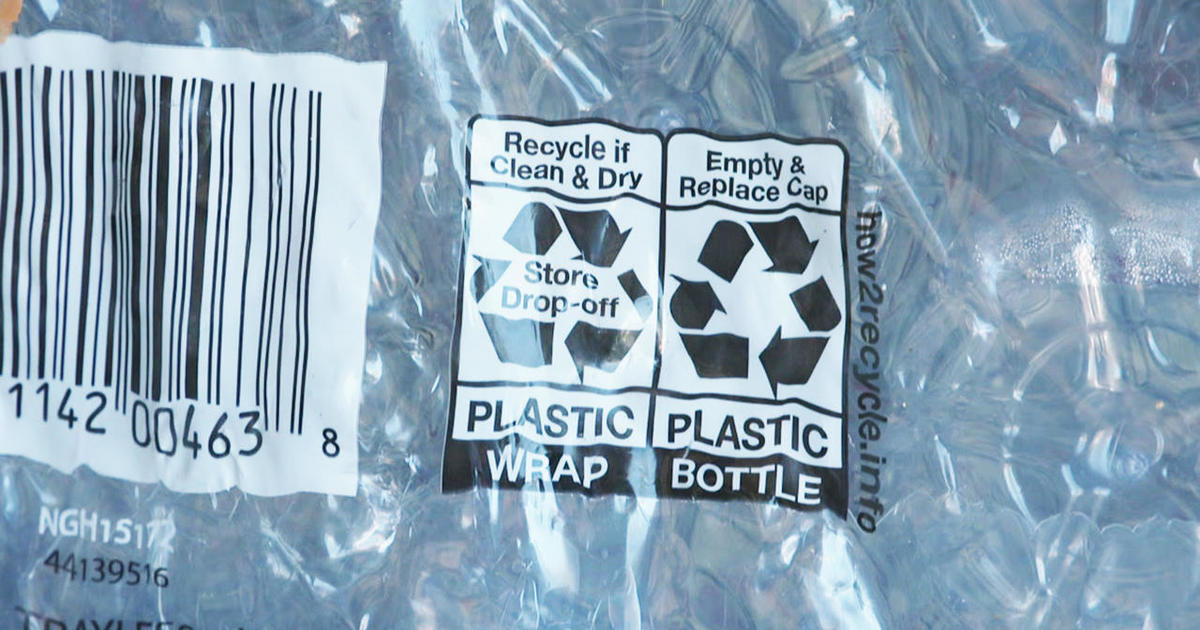
Critics call out plastics industry over "fraud of plastic recycling"

Can you use your home equity to buy land?

U.S. issues travel warning for Israel as Iran expected to attack any time
- Share full article
Advertisement
Supported by
To Cut Cancer Risks, E.P.A. Limits Pollution From Chemical Plants
The new regulation is aimed at reducing the risk of cancer for people who live close to plants emitting toxic chemicals.

By Lisa Friedman
More than 200 chemical plants across the country will be required to curb the toxic pollutants they release into the air under a regulation announced by the Biden administration on Tuesday.
The regulation is aimed at reducing the risk of cancer for people living near industrial sites. This is the first time in nearly two decades that the government has tightened limits on pollution from chemical plants.
The new rule, from the Environmental Protection Agency, specifically targets ethylene oxide, which is used to sterilize medical devices, and chloroprene, which is used to make rubber in footwear.
The E.P.A. has classified the two chemicals as likely carcinogens. They are considered a top health concern in an area of Louisiana so dense with petrochemical and refinery plants that it is known as Cancer Alley.
Most of the facilities affected by the rule are in Texas, Louisiana and elsewhere along the Gulf Coast as well as in the Ohio River Valley and West Virginia. Communities in proximity to the plants are often disproportionately Black or Latino and have elevated rates of cancer, respiratory problems and premature deaths.
Michael S. Regan, the administrator of the E.P.A., traveled last year to St. John the Baptist Parish in Louisiana, the heart of Cancer Alley, to announce his agency’s intention to limit pollution from the plants.
In a telephone call with reporters on Monday, Mr. Regan recalled that he had been struck by the concentration of chemical plants and by the way they had affected families for decades. “I saw firsthand how the multigenerational and widespread effects of pollution were affecting the health of the local community,” Mr. Regan said.
He said that the rule would cut toxic pollutants by 6,200 tons annually and reduce emissions of ethylene oxide and chloroprene by 80 percent.
Under the rule, chemical manufacturers must monitor vents and storage tanks for ethylene oxide and chloroprene emissions and plug any leaks.
Plants will also be required to reduce emissions of four other toxic chemicals: benzene, which is used in motor fuels as well as oils and paints; 1,3-butadiene, which is used to make synthetic rubber and plastics; and ethylene dichloride and vinyl chloride, both of which are used to make a variety of plastics and vinyl products.
One year after monitoring begins, facilities will be required to submit quarterly data to the E.P.A. The data will be made public so that communities can understand any risks they face.
Patrice Simms, vice president for litigation for healthy communities at Earthjustice, an environmental group, said it was impossible to overstate the importance of the new regulation to families that live next to large polluting facilities.
“In a very real sense this is about life and death,” he said.
Mr. Regan has made it a priority to address the environmental hazards facing communities that surround industrial sites, but his efforts have been met with significant roadblocks.
In 2022, in response to complaints from Louisiana residents, the E.P.A. began an investigation into whether the state had violated civil rights laws by permitting scores of industrial facilities to operate in and around St. John the Baptist Parish, a predominantly Black community. Title VI of the Civil Rights Act allows the E.P.A. to investigate whether state programs that receive federal money are discriminating on the basis of race, color or national origin.
But Louisiana sued the E.P.A., arguing that the federal government could enforce the Civil Rights Act only in cases in which state policies were explicitly discriminatory. The E.P.A. ended the investigation last year, but the state continued its legal challenge. In January, the U.S. District Court for the Western District of Louisiana ruled in the state’s favor.
The new chemical rule is widely viewed as part of the E.P.A.’s effort to find ways to police polluting plants despite the setback. On Monday, Mr. Regan insisted that the rule was not related to the civil rights case.
“As administrator, what I’ve pledged to do is use every single tool in our toolbox to do whatever we can to protect these frontline communities,” he said.
Last month the E.P.A. finalized separate standards that require plants that sterilize medical equipment and other facilities that use ethylene oxide to install pollution controls to reduce their emissions.
Republicans and industry groups said that the rule announced on Tuesday was onerous, and they questioned the E.P.A.’s scientific assessment of the chemicals.
“E.P.A. should not move forward with this rule-making based on the current record because there remains significant scientific uncertainty,” the U.S. Chamber of Commerce wrote in a letter to the agency.
One company that will be affected by the new rule is Denka Performance Elastomer, a synthetics manufacturer in Laplace, La. Air monitoring near the plant has consistently shown chloroprene levels as high as 15 times the recommended concentration deemed safe over a lifetime of exposure, according the E.P.A. Saying the company’s plant posed an “imminent and substantial endangerment to public health and welfare,” the agency sued Denka last year, seeking to compel it to reduce its emissions of chloroprene.
The company said that concentrations of the chemical were well below what would constitute a public health emergency. It also said that it had cut its chemical emissions significantly since 2015.
In a statement, Denka called the new rule “draconian.” It said that the requirements would force the company to “idle its operations at tremendous expense and risk to its hundreds of dedicated employees.”
The company said that it intended to challenge the rule in court.
Because of an editing error, an earlier version of this article misidentified the law that allows the authorities to investigate whether state programs that receive federal money are discriminating on the basis of race, color or national origin. It is the Civil Rights Act, not the Clean Air Act.
How we handle corrections
Lisa Friedman is a Times reporter who writes about how governments are addressing climate change and the effects of those policies on communities. More about Lisa Friedman
New EPA rule says over 200 US chemical plants must reduce toxic emissions linked to cancer

Corrections & Clarifications: This story was updated to clarify that about 104,000 people within roughly 6 miles of synthetic organic chemical plants in the U.S. face elevated cancer risks.
More than 200 chemical plants nationwide will be required to reduce toxic emissions linked to cancer under a new rule from the U.S. Environmental Protection Agency.
The new regulation advances the Biden administration’s commitment to environmental justice by implementing protections for vulnerable communities burdened by toxic air pollution from petrochemical plants. The new standards are also part of President Joe Biden’s initiative to lower cancer rates in the United States.
According to EPA assessments, about "104,000 people within about 6 miles of the facilities currently have cancer risks greater than 1 in 10,000." The EPA, the assessment adds, generally considers this as an "elevated" risk level.
The new rule primarily targets industry plants that emit ethylene oxide and chloroprene, according to the EPA. Ethylene oxide is used as a sterilizing agent for medical equipment, and chloroprene is used to make synthetic rubber.
Previous assessments from the EPA and public health experts have also noted that people living near polluting industrial facilities are disproportionately poor and more likely to be Black.
"President Biden believes every community in this country deserves to breathe clean air. That’s why I took the Journey to Justice tour to communities like St. John the Baptist Parish, where residents have borne the brunt of toxic air for far too long," EPA Administrator Michael Regan said in a statement Tuesday.
"We promised to listen to folks that are suffering from pollution and act to protect them. Today we deliver on that promise with strong final standards to slash pollution, reduce cancer risk, and ensure cleaner air for nearby communities."
Ohio train derailment: Norfolk Southern, victims reach $600M settlement for 2023 East Palestine train derailment
Toxic emissions can increase risk of lymphoma, leukemia
Ethylene oxide and chloroprene are mostly produced by facilities in Texas and Louisiana, where minority communities have elevated rates of cancer and other health problems. According to the EPA, long-term exposure to these two chemicals can increase the risks of certain types of cancer, such as lymphoma, leukemia, breast cancer and liver cancer.
Under the new rule, cancer risk for people living in these communities will be reduced by 96%, the EPA said, and more than 6,200 tons of toxic pollutants will be cut each year.
Once implemented and combined with another EPA rule issued last month restricting ethylene oxide emissions from commercial sterilization facilities, the new rule will reduce ethylene oxide and chloroprene emissions by nearly 80%, according to the agency.
Is yours on our map? 70 million Americans drink water from systems reporting PFAS to EPA.
Patrice Simms, vice president of the environmental law firm Earthjustice, called the new rule "a victory in our pursuit for environmental justice." The rule also requires fence-line monitoring for covered processes and equipment that make, use, store or emit pollutants.
Fence-line monitoring will help chemical manufacturers identify possible leaks from their facilities, which they will have to find and make repairs if annual average air concentrations are higher than the threshold, according to the EPA.
Chemical plants will also be required to reduce emissions of other dangerous chemicals, such as benzene, 1,3-butadiene, ethylene dichloride, and vinyl chloride.
"By cutting emissions of these chemicals, the rule will reduce the risks of developing cancer from breathing in toxic air pollutants," the EPA said. "In addition, the rule will reduce smog-forming volatile organic compounds by 23,700 tons a year."
Minority communities most impacted by pollutants
Tuesday's announcement comes after the EPA filed a complaint against neoprene maker Denka in 2022 to force the company to cut chloroprene emissions at its facility in LaPlace, Louisiana. The Japanese company said this year that the EPA overstepped its authority when it sought rapid reductions of carcinogenic chloroprene emissions.
Since purchasing the facility in 2015, Denka said it has already invested over $35 million to reduce the facility’s chloroprene emissions. The company told USA TODAY it will review the EPA's new rule and technical documents once they are available.
"After addressing EPA’s unrealistic compliance deadline, (Denka Performance Elastomer) expects to join the ethylene oxide manufacturers across the U.S. in opposing the substantive requirements of this rule," Denka said in a statement Tuesday.
USA TODAY has reported that in 2018, the Denka plant released the highest amount of toxic chemicals − more than 75,000 pounds of chloroprene, which is about 42 times the amount of the next-highest emitter, according to EPA records.
The plant is located in the Mississippi River Chemical Corridor, an 85-mile industrial region between New Orleans and Baton Rouge. The region is also known as "Cancer Alley" because of its high number of petrochemical plants.
Cancer Alley "continues to have a disproportionate number of Black citizens compared to the rest of the nation (forty percent of the population living in the Alley are Black, compared to twelve percent nationwide)," according to Keele University .
For several years, Black residents in the region have lobbied local and state officials to take action against petrochemical plants emitting toxic pollutants into the air.
Contributing: Reuters

COMMENTS
12:00 PM - 7:00 PM. Write a review. About. Explore the jungle at Safari Nation, where children of all ages can jump around on the inflatables and have fun on the obstacle courses. We also offer a Ballocity and indoor Bumper Cars, We have the largest Jungle Gym with loads of fun activities Built in Including Drop Slide, Wave slides, Spider climb ...
Winston-Salem The Safari Nation Offers Jubgle Gym, Toddler Playground, Birthday Parties, Zipline, Big baller, Bumper Car, Arcade Games, Cabana at Greensboro, Winston-Salem, High Point, NC. Book Open Ply Group Bookings with Coupons & Deals at best afforable Price.
1st Warning: The rule will be reviewed with the child again to ensure complete understanding of Safari Nation's safety rules. 2nd Warning: The parent will be notified of the child's behavior and a last warning given. 3rd Warning: The child will be asked to discontinue play for at least 20 minutes.
Safari Nation is a Family Entertainment Center, also known as a Children's Fitness Center. In 2012 in Greensboro, NC, Safari Nation was founded by a husband and wife who believed that parents needed a good place to take their children to play. The business soon became widely popular because of the clean, safe, and secure environment offered.
Safari Nation. 10,523 likes · 3,806 were here. Safari Nation is a Family fun Center. Safari Nation's play areas encourage physical activity in a way that is fun. With a jungle gym, zipline, bumper...
Safari Nation, Winston-Salem, North Carolina. 3,129 likes · 15 talking about this · 8,215 were here. Safari Nation is a Family fun Center. Safari Nation's play areas encourage physical activity in a...
Skip to main content. Review. Trips Alerts Alerts
Specialties: Come jump into an adventure at Safari Nation in Winston-Salem! Our indoor playground is packed wall to wall with fun for every age. Clean, safe, and fun, our facility is the perfect place for hosting your kid's next birthday party. Guided by Safari Sam and Jungle Jane, they'll get to slide, bounce, and jump their way through our safari of fun while you get to watch them play from ...
Safari Nation. 5 Reviews. #12 of 27 Fun & Games in Winston Salem. Fun & Games, Game & Entertainment Centers. 3191 Peters Creek Pkwy, Winston Salem, NC 27127-4713. Open today: 12:00 PM - 7:00 PM. Save. Jason W. North Carolina Mountains, North Carolina.
Safari Nation is a family entertainment center, also known as a Children's Fitness Center. In 2012 Safari Nation was founded by a husband and wife who believed that parents needed a good place to take their children to play. The business soon became widely popular because of the clean, safe, and secure environment offered.
Safari Nation is a Family Entertainment Center, also known as a Children's Fitness Center. Safari Nation's play areas encourage physical activity in a way that is fun. With a jungle gym, zipline, bumper cars, toddler playground.
Use that initial drive to quiz your driver on how to stay safe and drive in a safe manner. Here are some further tips for those looking to do a self-drive safari: Never get closer than 20 m (65 ft) to large game, especially Cape buffaloes, rhinos and elephants. Give a wide berth to injured animals and those with young.
Safari Nation opens new lines of inquiry in the study of national parks in Africa and the rest of the world. The Kruger National Park is South Africa's most iconic nature reserve, renowned for its rich flora and fauna. According to author Jacob Dlamini, there is another side to the park, a social history neglected by scholars and popular writers alike in which blacks (meaning Africans ...
About. Explore the jungle at Safari Nation, where children of all ages can jump around on the inflatables and have fun on the obstacle courses. We also offer a Ballocity and indoor Bumper Cars, We have the largest Jungle Gym with loads of fun activities Built in Including Drop Slide, Wave slides, Spider climb etc. Duration: 2-3 hours.
Safari Nation is a popular Family Entertainment Center in High Point, NC, offering a clean and secure environment for children to play and burn energy regardless of the weather. Founded in 2012, Safari Nation provides a variety of attractions such as a jungle gym, zipline, bumper cars, toddler playground, and arcade games to promote physical ...
Safari Nation opens new lines of inquiry in the study of national parks in Africa and the rest of the world. The Kruger National Park is South Africa's most iconic nature reserve, renowned for its rich flora and fauna. ... how and why Africa's national parks—often derided by scholars as colonial impositions—survived the end of white ...
About Us. Safari Nation is a Family Entertainment Center, also known as a Children's Fitness Center. In 2012 in Greensboro, NC, Safari Nation was foundedby a husband and wife who believed that parents needed a good place to take their children to play. The business soon became widely popular because of the clean, safe, and secure environment ...
Cover. Dlamini, Jacob S. T. Safari Nation: A Social History of the Kruger National Park. Ohio: Ohio University Press, 2021. Safari Nation opens new lines of inquiry in the study of national parks in Africa and the rest of the world. The Kruger National Park is South Africa's most iconic nature reserve, renowned for its rich flora and fauna.
Skip to main content. Review. Trips Alerts
Jordan's air force intercepted and shot down dozens of Iranian drones that violated its airspace and were heading to Israel, two regional security sources said.
Experts said it was the first time an international court determined that governments were legally obligated to meet their climate targets under human rights law.
An Australian court will rule on Monday in a defamation suit brought by a former government adviser accused of raping a colleague on the grounds of parliament, in a case that has gripped the nation.
The rule, which was finalized this week, makes clear that anyone who sells firearms predominantly to earn a profit must be federally licensed and conduct background checks, regardless of whether they are selling on the internet, at a gun show or at a brick-and-mortar store, Attorney General Merrick Garland told reporters. ...
The Arizona Supreme Court on Tuesday upheld a 160-year-old law that bans abortions and punishes doctors who provide them, saying the ban that existed before Arizona became a state can be enforced ...
WASHINGTON - Today, April 10, the Biden-Harris Administration issued the first-ever national, legally enforceable drinking water standard to protect communities from exposure to harmful per-and polyfluoroalkyl substances (PFAS), also known as 'forever chemicals.' Exposure to PFAS has been linked to deadly cancers, impacts to the liver and heart, and immune and developmental damage to ...
Open now. 12:00 PM - 7:00 PM. Write a review. About. Safari Nation is a Family Entertainment Center, also known as a Children's Fitness Center. In 2012 in Greensboro, NC, Safari Nation was founded by a husband and wife who believed that parents needed a good place to take their children to play. The business soon became widely popular because ...
Jungle Rules The Safari Nation Offers Jubgle Gym, Toddler Playground, Birthday Parties, Zipline, Big baller, Bumper Car, Arcade Games, Cabana at Greensboro, Winston-Salem, High Point, NC. Book Open Ply Group Bookings with Coupons & Deals at best afforable Price.
Seven years ago, Gladys Anderson bought her dream home in Bono, Arkansas. "We moved out here to get away from the busyness of town, the noise," she said. "Just peace and quiet, country living ...
The new chemical rule is widely viewed as part of the E.P.A.'s effort to find ways to police polluting plants despite the setback. On Monday, Mr. Regan insisted that the rule was not related to ...
Under the new rule, cancer risk for people living in these communities will be reduced by 96%, the EPA said, and more than 6,200 tons of toxic pollutants will be cut each year.